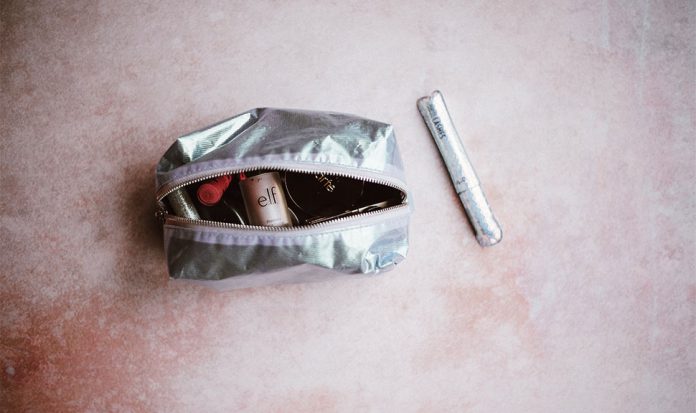Pregnancy can be the best feeling in the world and you can even count it as some of the best months of your life (morning sickness notwithstanding). But along with the excitement, pregnancy comes with its own set of precautions as well, to ensure both you and your new baby’s safety. We’re sure you have already heard the basics — no smoking or alcoholic drinks, no sushi, and consulting a Doctor before taking any kind of medication. But just in case you didn’t know, you need to be cautious about your skincare and makeup as well. And while skincare and makeup ingredients might be a bit more daunting in their complexity, we’ve come up with this simple list that can serve as your guide for the next nine months.
So if you’re expecting a bundle of joy, it is better to skip beauty and hygiene products that list these in their ingredients:
Retinol: Typically found in anti-aging beauty products
Retinol is a derivative of Vitamin A and while it is important for embryonic growth, studies have linked excessive amounts of the vitamin to malformations of the baby’s head, heart, brain, and spinal cord.
Oxybenzone and Avobenzone: Used in chemical sunscreens
Chemical filters such as these two are possible hormone disruptors, and some studies have shown that they play a major role in fetal health. These chemicals have also been linked to childhood obesity, ADHD, and developmental effects on the nervous system. Pregnant women should instead opt for physical or natural sunscreens instead of chemical ones.
Benzoyl Peroxide and Salicylic Acid: Found in common acne-fighting medications
Hormone changes during the pregnancy could sometimes result in adult acne, but pregnant women should also be careful of using acne medication that contains these ingredients.
Hydroquinone: A lightening or whitening ingredient in skincare
Aside from acne, pregnant women might also experience melasma, a skin pigmentation also known as the “mask of pregnancy.” While it usually goes away on its own after pregnancy, pregnant women might be tempted to use over-the-counter lightening or brightening products that might contain hydroquinone. Hydroquinone’s high absorption rate of 35 to 45 percent is troubling to experts and health practitioners.
Parabens such as propyl, butyl, isopropyl, isobutyl, and methyl: A common preservative in cosmetics
Parabens are identified hormone disruptors and are easily absorbed into the skin. A 2016 study links a prenatal exposure to BPA (a type of paraben) to a number of pregnancy and childhood issues such as miscarriage, low birth weight, impaired fetal growth, and behavioral problems.
Aluminum Chloride, including aluminum chloride hexahydrate and aluminum chlorohydrate: Found in antiperspirants
Aluminum chloride has been vilified for a number of years thanks to a study linking it to Alzheimer’s disease and even breast cancer. And while both links have been questioned and criticized, it is still best for pregnant women to be careful of using antiperspirants with the said ingredients, especially in high quantities.
Beta hydroxy acids such as salicylic acid, 3-hydroxypropionic acid, trethocanic acid, and tropic acid: Found in exfoliating and anti-acne products
Studies have found that high doses of such acids in its oral form cause complications and birth defects.
Phthlates including deithyl and dibutyl: Found in products with synthetic fragrances and nail polishes
Phthlates are also identified as hormone-disrupting chemicals, and studies have found that it increases the risk of miscarriage and gestational diabetes.
Thioglycolic acid can also be listed as acetyl mercaptan, mercaptoacetate, mercaptoacetic acid, and thiovanic acid: Found in chemical hair removers
Although no studies have found that these chemicals can adversely affect a pregnancy, there are also no studies proving that it is safe. It is used to remove hair as the chemical is strong enough to react chemically with the disulfide bonds in hair, and since no studies have been done to detect potential reprotoxic effects, it is better to not use such products until after the pregnancy.
Essential Oils: Used in a variety of wellness products
While we may think that natural products such as essential oils are better than chemicals, mothers might do their research and consult first before using anything. In the case of essential oils, not all oils can be used for pregnant women and children, especially if it is pure and undiluted. Some oils pregnant women should watch out for include Jasmine and Clary Sage, which are known to cause contractions, Sage and Rosemary can cause bleeding, and Rosemary has been proven to also increase blood pressure.
Although it might be hard to replace your full beauty arsenal for the next nine months of your pregnancy, it is still better to err on the side of caution especially when it comes to your and unborn baby’s health. Besides, nothing can be more beautiful, than a glowing and healthy pregnant woman.
Join our MomCenter Community on our Facebook page and Facebook group.





